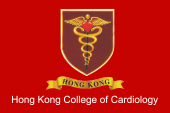Abstract
Objectives: To investigate the effectiveness of cardiac health promotion program in improving the cardiovascular (CVD) risk factors, self-efficacy and 10-year general cardiovascular (CVS) risk. Design: Quasi-experimental cohort study. Setting: Local community and a rehabilitation hospital in Hong Kong. Participants: General population without history of CVD, were recruited through convenient sampling in between April 2008 to March 2009. Interventions: Subjects were arranged to attend ten sessions of empowerment workshops on cardiovascular health, diet and community exercise classes. Assessment of different health domains, self-efficacy and risks were conducted. Results: 215 Cantonese speaking Chinese aged 51.1±9.5, were recruited. Lack of exercise (57.7%), hyperlipidaemia (55.3%) and central obesity (51.6%) were found to have the highest prevalence among all of the CVD modifiable risk factors in this subjects' cohort. 22.8% and 3.4% of the male and female subjects had high risk for CVD respectively. After the program, subjects' total volume of exercise increased from 221.33±270.37 to 256.26±277.72 minutes/week (p < 0.01) and the level of high-density lipoprotein increased from 1.36±0.30 to 1.42±0.31 mmol/L (p < 0.001). Other domains on physical fitness and self efficacy also demonstrated significant improvement. The 10-year general CVS risk for this cohort decreased from 8.66±7.43 to 7.29±5.24% (p < 0.001). Conclusions: Higher prevalence in CVD risk factors was noted in our subject cohort who had low risk perception. Cardiac health promotion program, could improve physical fitness, lipid profile, blood pressure, self efficacy and absolute risk for CVD.
Recommended Citation
Clement Kin-Ming Chan, Kai-Chi Leung, Sek-Ying Chair, The Effect of Cardiac Health Promotion Program Among the General Public in Hong Kong Journal of the Hong Kong College of Cardiology 2012;20(1) https://doi.org/10.55503/2790-6744.1050
Creative Commons License

This work is licensed under a Creative Commons Attribution-Noncommercial-No Derivative Works 4.0 License.

